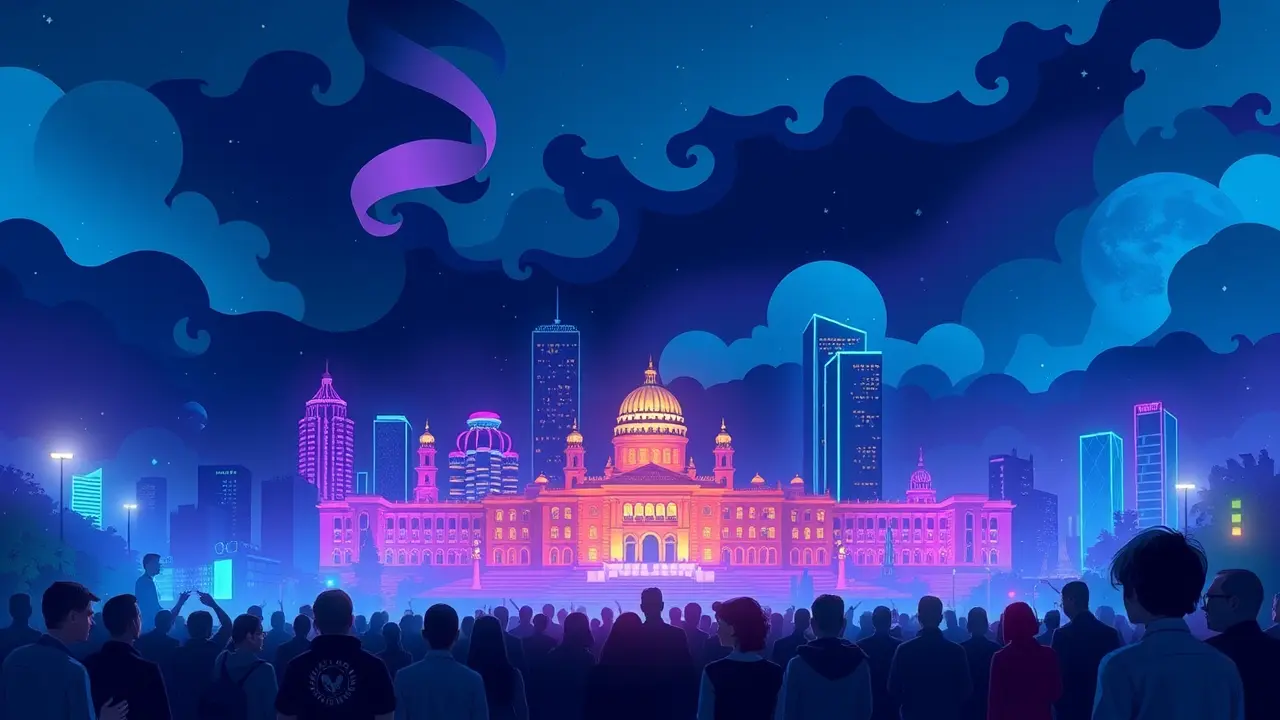
Politicshuman rightsProtests and Activism
International human rights meeting held in Bogotá amid organized crime threat.
EM
Emma Wilson
3 weeks ago7 min read
This week, Bogotá transforms into the world's conscience as more than 400 human rights defenders from over 100 nations converge for the International Federation for Human Rights’ 42nd Congress, a gathering that feels both urgently necessary and dangerously exposed. The choice of Colombia's capital—a city that has wrestled with decades of internal conflict, paramilitary violence, and fragile peace accords—isn't merely symbolic; it's a deliberate staging ground in the frontline battle against the metastasizing threat of organized crime, which now operates with the sophistication of multinational corporations while leaving trails of blood and silenced communities.These defenders, the journalists documenting mass graves, the lawyers challenging impunity, the indigenous leaders protecting their ancestral lands from narco-traffickers, arrive not for abstract debate but to share survival strategies in an era where criminal syndicates have co-opted state institutions, corrupted judicial systems, and turned social leaders into targets. The statistics are a chilling ledger of this war: Global Initiative Against Transnational Organized Crime reports that illicit economies now account for trillions annually, while in Latin America alone, groups like Mexico's Cartel Jalisco Nueva Generación, Brazil's Primeiro Comando da Capital, and the transnational MS-13 have expanded their operations into illegal mining, human trafficking, and cybercrime, creating shadow governments that operate beyond the reach of conventional law enforcement.The FIDH congress, therefore, represents a critical nexus where the traditional human rights agenda—focused on state accountability—must rapidly evolve to confront non-state actors who operate with territorial control, sophisticated financial networks, and a brutal disregard for international law. We've seen this pattern before in the rise of the Sicilian Mafia's influence over Italian politics or the Shining Path's reign of terror in Peru, but today's criminal enterprises leverage globalization, using encrypted communications, cryptocurrency transactions, and legal loopholes to create resilient networks that can withstand the arrest of any single kingpin.The consequences of failure are unthinkable: further erosion of democratic governance, mass displacement as communities flee violence, and the complete collapse of rule of law in regions where the badge of authority belongs not to elected officials but to the man with the largest arsenal. Yet within this grim landscape, the Bogotá meeting represents a defiant spark of resilience, a global coalition refusing to surrender the future to those who profit from fear, and a testament to the courage of those who continue documenting atrocities even when their own names appear on death lists circulated through WhatsApp groups.
#human rights
#organized crime
#FIDH
#Bogotá
#Latin America
#featured
Stay Informed. Act Smarter.
Get weekly highlights, major headlines, and expert insights — then put your knowledge to work in our live prediction markets.
Related News
Comments
Loading comments...
© 2025 Outpoll Service LTD. All rights reserved.